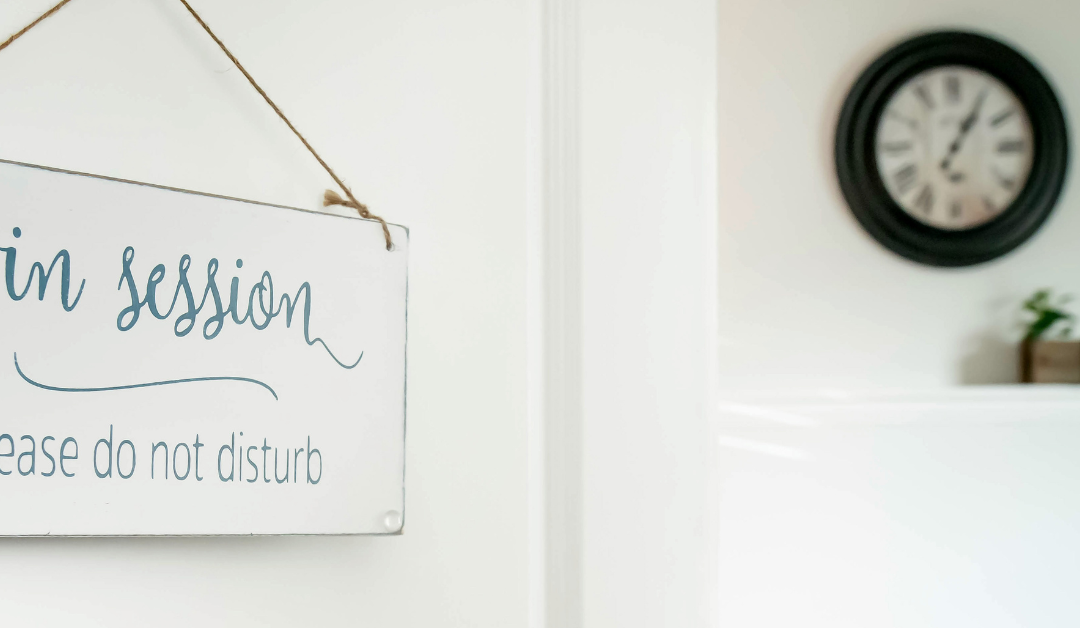Starting therapy—whether for the first time or with a new therapist—can bring a mix of excitement, curiosity, and let’s be real—a whole lot of nerves. You might be wondering what to say, how to start, or if you’ll even “do it right” (spoiler alert: there’s no right or wrong way to do therapy).
Let’s talk about some ways to calm those nerves and help you feel more grounded as you step into this new space.
1. Take a Few Slow, Intentional Breaths
I know, I know—“just breathe” can feel like a cliché. But stay with me for a second. Have you ever noticed how your body responds to stress? Your shoulders tense up; your heart beats faster; your breath gets shallow. That’s your nervous system reacting to uncertainty. The good news? You can send it a different message.
Try this simple breathing technique:
-
- Inhale slowly through your nose for four seconds
- Hold your breath for two seconds
- Exhale gently through your mouth for six seconds
- Repeat three to five times
Why this helps:
Deep, controlled breathing is like a reset button for your nervous system. It slows your heart rate, signals to your body that you’re safe, and helps ease physical symptoms of anxiety like tightness in your chest or racing thoughts. Think of it as giving your body a moment to catch up with your mind.
If your nerves spike while sitting in the waiting room or logging into your virtual session, take a few of these breaths before you start. It won’t erase the nerves entirely, but it will make them more manageable.
2. Jot Down What You’re Feeling
One of the biggest sources of anxiety before therapy is not knowing what to say. You might feel like you need to have a game plan, or worse, that you have to “perform” in some way. Let’s go ahead and throw that idea out the window.
Instead of letting thoughts spiral in your head, try writing them down. You don’t need to write an essay—just a few notes about what’s been on your mind lately. Ask yourself:
- What made me decide to start therapy now?
- What emotions have been coming up for me recently?
- Is there anything I feel hesitant or scared to talk about?
- What do I hope therapy can help me with?
You don’t have to bring this with you (unless you want to), but just getting these thoughts out can help ease the mental clutter and give you a starting point.

Why this helps:
Writing externalizes your thoughts, making them feel less overwhelming. It also gives you something tangible to refer back to if you get stuck during the session. Plus, it reminds you that you do have something to talk about—even if it’s just, “I feel anxious about being here.” (Which, by the way, is a totally valid way to start.)
3. Get Comfy (Literally)
Therapy isn’t a job interview or a test. You don’t need to “dress the part” or show up a certain way. Instead, think about what makes you feel safe and at ease.
If you’re going to an in-person session, wear something that feels like you—your favorite sweater, a cozy hoodie, something that makes you feel at home in your body. If it’s a virtual session, create a space that feels calming. Light a candle, wrap yourself in a blanket, or grab a warm cup of tea.
Why this helps:
Physical comfort signals safety to your brain, which can help ease emotional tension. When your body feels supported, your mind can relax more easily. It’s a small but powerful way to set the tone for your session.
4. Focus on Connection, Not Perfection
Here’s a little secret: Therapy isn’t about saying the “right” things. It’s about being honest, even when you don’t have the perfect words.
Your therapist isn’t expecting you to come in with a neatly packaged story. They’re there to meet you where you are, whether that means you’re ready to open up or you just need time to settle in.
If you’re worried about what to say, try this simple mindset shift:
Instead of thinking, “How do I explain this perfectly?” – try How can I be honest about what I’m feeling right now? That honesty is enough.
Why this helps:
Releasing the need for perfection takes the pressure off. Therapy is a space to explore, not perform. By focusing on connection—rather than saying the “right” things—you allow yourself to be present and engaged in a real way.
5. Give Yourself Grace
Feeling nervous means you care. It means you’re stepping into something meaningful. That’s a good thing. But it also means you might be overanalyzing, second-guessing, or expecting too much from yourself too soon.
Let’s reframe this: What if instead of expecting yourself to “get it right” from day one, you gave yourself permission to just show up?
You don’t have to unpack everything in the first session. You don’t have to be fully comfortable right away. It’s okay if it feels awkward at first. Every relationship takes time to build—including the one with your therapist.
Why this helps:
Self-compassion eases the pressure and allows you to settle into therapy at your own pace. When you remind yourself that it’s okay to feel unsure, you create a space for growth without judgment. Therapy isn’t a race—it’s a process, and you get to move through it in a way that feels right for you.

What Happens Next?
If you’re wondering what to expect in your first session, here’s the deal:
- Your therapist will likely ask some questions about what brought you to therapy, your background, and what you hope to work on.
- You don’t have to share everything all at once—just what feels comfortable.
- It’s completely normal to feel awkward or not know what to say at first. Your therapist will help guide the conversation.
- If you don’t click with your therapist right away, that’s okay. Therapy is about finding the right fit, and sometimes that takes time.
The most important thing to remember?
You’re allowed to take up space here — we demand it. Therapy is for you—your thoughts, your feelings, your growth. However you show up, You Are Enough.
You’re Ready—Even If You Don’t Feel Like It
Starting therapy is a big step, and just considering it means you’re already doing something powerful. You don’t have to be fearless to begin—you just have to be willing.
Take a deep breath. You’ve got this.
If you need help finding the right therapist or navigating your first session, we’re here for you. Give us a call or schedule a consultation online to take the next step toward the clarity, peace, and support you deserve.
At Simplicity Psychotherapy, we help ambitious professionals untangle the stress of success, relationships, and identity—without judgment or the pressure to have it all figured out. Whether you’re feeling overwhelmed, struggling with boundaries, or just need a space to process, we’re here to support you.
Your next step? Schedule a free 15-minute consultation to see if we’re the right fit. Let’s talk about what you need and how therapy can work for you.
Because taking care of your mind isn’t a luxury—it’s a necessity. And you deserve support that truly gets it.

About the Author
I’m Rayvéne Whatley a Licensed Professional Counselor in Georgia, Louisiana, and Texas. I enjoy empowering you to remove the mask of other people’s expectations and have the audacity to be yourself. I have a particular passion for Black man and women cope with anxiety and challenge expectations by reexamining beliefs that no longer suit their desires.


